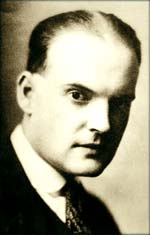Author: Julia Glass
Condition of Mr. Segundo: Concerned with economic developments at the Segundo Studio.
Subjects Discussed: Hinging a narrative on a piece of cake, conversations in moving vehicles, the unintended continuation of the Bank Street universe, an urban Yoknapatawpha, family and pregnancies in narrative, whether The Whole World Over is female-centric, Jane Austen, omniscient narrators, Al Green, the virtues of the color green, generational commentary, midlife essay collections, multiples in imagery, on not doing everything in life, how to talk with a politics-obsessed blowhard, 9/11 in literature, Tom Perrotta’s Little Children, the intrusion of history on the reading experience, the meaning of historical fiction, New Mexico, the tax advantages of research, Bill Richardson, water resources, character names, writing on instinct, the importance of character, memory, the patriarchal assignation of names, and whether the book contains too many cakes.
Listen: Play in new window | Download

 While doing research to improve my ability to write about literature (because let’s face the facts: professional or not, humility is good for the evolving writer), I stumbled across
While doing research to improve my ability to write about literature (because let’s face the facts: professional or not, humility is good for the evolving writer), I stumbled across